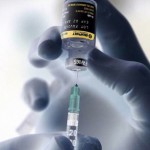A Grand Bargain for Intellectual Property in International Trade Deals?
 Bloomberg View columnist Caroline Freund has proposed a thoughtful grand bargain for brand-name pharmaceutical firms’ data exclusivity in international trade deals.
Bloomberg View columnist Caroline Freund has proposed a thoughtful grand bargain for brand-name pharmaceutical firms’ data exclusivity in international trade deals.
Unfortunately, the column confuses two related but different issues: Patent protection and data exclusivity. The former is available to anyone who invents a better mousetrap. It is an important type of intellectual property (IP), and the U.S. leads the world in protecting inventors’ IP.
Patents are necessary to motivate investors to risk their capital in pharmaceutical research and development. Unfortunately, innovative pharmaceutical firms cannot capture the full value of their IP because the Food and Drug Administration (FDA) takes an excruciatingly long time to approve new medicines.
As a result, effective patent terms for new medicines are much shorter than actual patent terms. Legislation to fix that problem is currently being considered by Congress.
However, this is a long-standing problem, for which the work-around has been data exclusivity. This refers to the data that an innovative drug developer submits to the FDA to get through its regulatory hoops. The FDA cannot release that data publicly before a certain amount of time has passed, which restores some of the patent protection that it has taken away through its regulatory burden.
Other countries have similar regulatory agencies but not the same terms of data exclusivity. For biologic drugs, the U.S. respects a 12-year period of data exclusivity, the longest in the world. This is becoming an obstacle to important international trade deals, especially the Trans Pacific Partnership. Ms. Freund proposes that the U.S. dial back the period to some sort of average. Although she does not suggest the right term, it looks like eight years would fit the bill.
Although a reasonable proposal, it suffers from two problems: Not all countries are equal. The U.S. is by far the largest market in the world. For the U.S. to roll back its data exclusivity by four years in exchange for Mexico, for example, granting four years of data exclusivity would hardly be a fair and square trade. On the contrary, other countries would have to add many years of data exclusivity to make up for the U.S. cutting of just one year. This hardly seems like ripe ground for negotiation.
Second, it takes more than a dozen years to develop a new biologic compound. Rolling back U.S. data exclusivity would break faith with the investors who are still researching and developing new therapies. The solution to effective global IP protection is not some sort of world-wide average. It is for every country to establish best practices.

